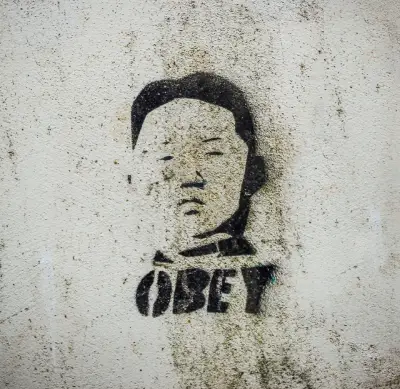It seems like everyone has a story about working for an autocratic leader, and if we’re being honest, most of them are pretty bad. Although autocratic leadership has a bad reputation, it doesn’t stop a lot of managers from using it. Let’s try to understand why.
What Is an Autocrat?
An autocratic (or authoritarian) leader is one who simply commands his or her employees to do tasks without asking for their input. Quite simply, they have complete control. Most importantly, what they want and what they think is their employees number one concern.
You most commonly see this leadership style in the military, where complete obedience is expected from soldiers of lower ranks. However, it’s quite common in businesses too. Inspired by visionaries like Steve Jobs (more on him later,) a lot of business leaders try to position themselves as demanding, hard-charging, somewhat inaccessible super geniuses. However, very few of them can pull it off without making their employees miserable and destroying their company’s culture.
Autocracy Gone Wrong
Autocratic leadership is one of the best-known leadership styles, thanks in no small part to history. Many of history’s most feared dictators were autocrats, including Kim Jong-il, Mao Zedong, and Josef Stalin. Their complete control of their organizations (in this case, entire countries) doomed millions of people. However, autocracy wasn’t the reason— it was simply a means to an end. In the wrong hands, autocracy can be a disaster— and the problem is, very few people can wield this weapon without hurting the people around them.
Since the autocrat is the only person whose opinion matters, their underlings may find themselves unfulfilled and creatively stunted. Their very existence can depend on the whim of their leader, which can ruin morale. However, in the cases of Kim Jong-il, Mao and Stalin, the stakes were obviously a lot higher. In these organizations, disobedience was often rewarded with death or exile.
Is Autocratic Leadership Ever Effective?
Actually, it can be. Autocratic leadership is an effective management style in times of crisis if (and this is a big if,) the autocratic leader is effective and able to control their emotions and ego.
Many successful business people, like Donald Trump, Martha Stewart, and Steve Jobs, used autocratic leadership methods at their companies at different points in time. It can accomplish things quickly and simplify communication, but often at the cost of employee well-being. In fact, the success of an autocratic leader depends heavily on the success of the organization he or she runs. If the leader is successful, a lot of their faults can be overlooked even if they’re an absolute nightmare to work for.
Steve Jobs is a great example of this idea. There are lots of horror stories about working for Steve Jobs, but an equal number of stories that praise his intelligence, business acumen, and ability to get the most out of his employees. Who’s right? They all are. But when you think of Steve Jobs, the first thing that comes to mind isn’t his lack of social graces— it’s probably the iPhone he willed into existence.
Transformative Leadership: A Better Alternative
Some managers point to Steve Jobs as an example of autocratic leadership gone right. They may see him as a reason why it’s ok to be a jerk to your employees! However, they’re forgetting something very important.
Although Steve Jobs acted like an autocrat, he was really a transformative leader who valued smart, innovative people and their creative solutions.
This quote is very illuminating:
“It doesn’t make sense to hire smart people and tell them what to do. We hire smart people so they can tell us what to do.”
-Steve Jobs
This quote really embodies why Steve Jobs was an effective leader. Yes, he had questionable social skills and often treated his employees poorly. He was extremely demanding— but at the end of the day, he appreciated his employees’ work and let them know it. That’s the difference between an autocrat and a true leader.
Verbalize Now isn’t just an online business English school. We’re your one-stop shop for charisma, influence, business English, and leadership training— everything you need to get that awesome international job you’ve been dreaming of.




